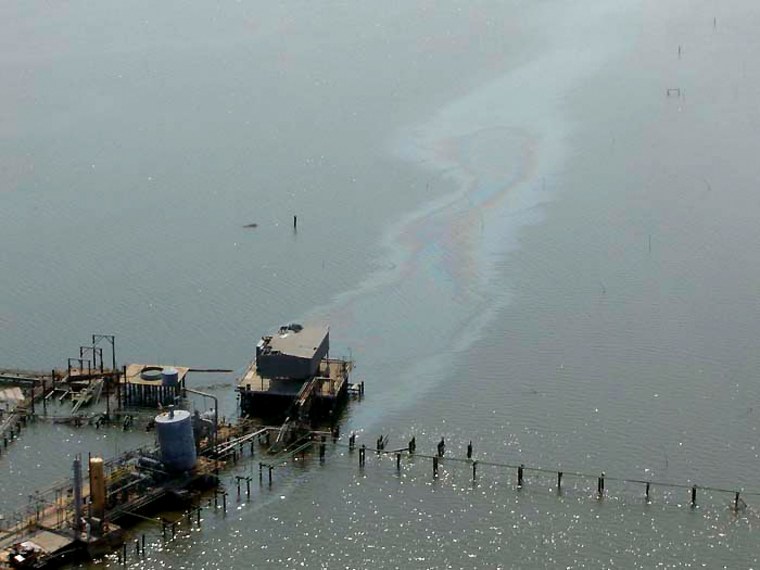In their first assessment of the chemical and oil spill damage from Hurricanes Katrina and Rita, the nation’s ocean stewards said Thursday that the long-term impacts will be “tremendous” and take a year or more to deal with.
“In terms of overall impact, these two hurricanes have created the largest incidents to which NOAA has ever responded,” David Kennedy, director of the Office of Response and Restoration at the National Oceanic and Atmospheric Administration, said in a statement.
“The scope of the damage in the area is enormous,” added Pat Montanio, chief of NOAA’s Damage Assessment Center.
More than 1,000 pollution reports have been received along the coastal waters of Alabama, Mississippi and Louisiana, NOAA said.
Sunken vessels an issue
“Prioritizing oil spills in the region is vital,” the agency stated. “It is likely that the long-term effects to the heavily populated Gulf Coast will be tremendous.”
Challenges include how to deal with numerous sunken or grounded vessels that may hold pollutants, NOAA said.
The spills, the largest from refineries and storage tanks, include six in southeast Louisiana designated by the Coast Guard as major (more than 100,000 gallons) and three listed as medium (10,000-50,000 gallons).
On Tuesday, the Coast Guard reported that 7.7 million gallons of oil or oil products had spilled due to Katrina in southeast Louisiana, of which 2 million gallons had yet to be recovered. Some 2.9 million gallons were recovered and 2.7 million gallons evaporated or naturally dispersed, the Coast Guard said.
NOAA said its agencies are helping identify the location of spills in coastal waters as well as reviewing the conditions of petroleum facilities from Galveston, Texas, to Pensacola, Fla.
Eye on cleanup
“NOAA’s scientific support teams will be advising the U.S. Coast Guard on ways to control and clean up spills throughout the region, and ensuring that additional damage to the environment does not occur during the cleanup,” the agency said.
“We have people in the impact zone and around the country working seven days a week to support and evaluate hazardous material spills," noted William Conner, chief of NOAA’s Hazardous Materials Response Division.
Officials have yet to provide hard estimates of any impacts to marine life and other wildlife in the region from the hurricanes.
